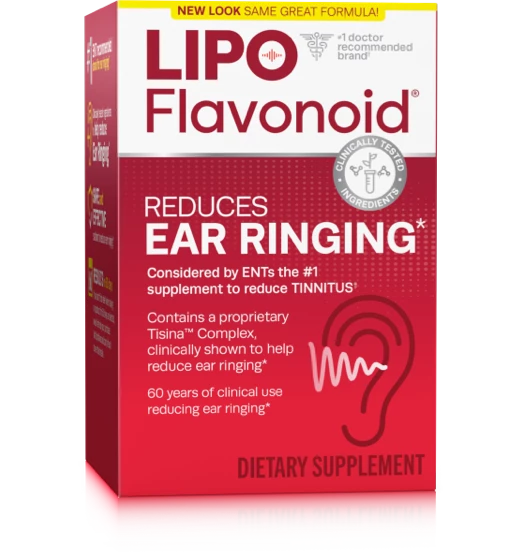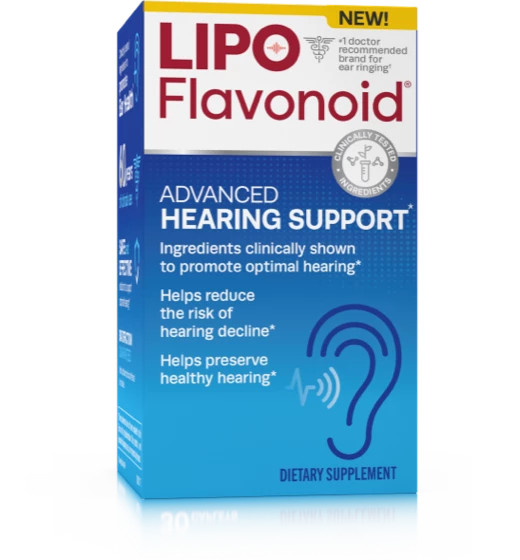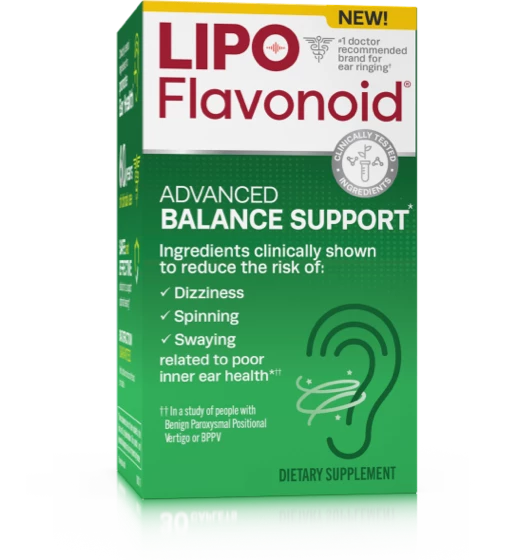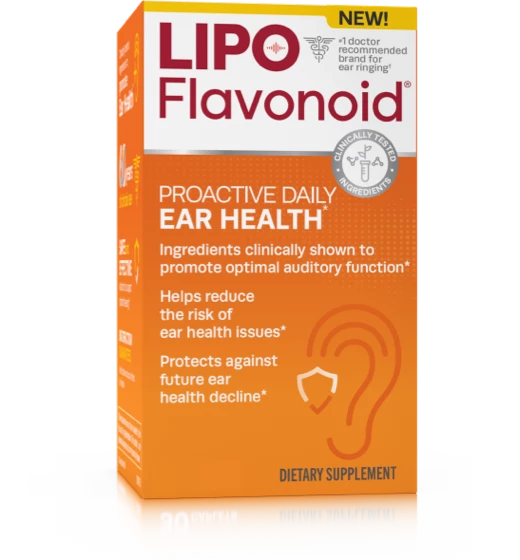- Products
- Science
-
Resources
- Tinnitus Resources
- What is tinnitus?
- Causes of tinnitus
- Tips for managing tinnitus
- Prepare for your doctor's visit
- PTSD and tinnitus
- Tinnitus FAQs
- Hearing Loss Resources
- What is hearing loss?
- Degrees of hearing Impairment
- Types of hearing loss
- Causes of hearing loss
- Treatment options for hearing loss
- Buy Now
- Coupons
- Test Your Hearing
- Test Your Hearing
- Healthcare Professionals
Top 10 Tinnitus Management Tips
There’s currently no “cure” for tinnitus, or “ringing” in the ears, but there are buzz-worthy strategies to help you manage your symptoms. We hope some of the tips below are helpful music to your ears:
1. Please, please, see a doctor: This is where you must to start whenever it comes to your health. In the case of tinnitus,it’s recommended that you talk to a specialist, such as an ear, nose and throat physician (an ENT or otolaryngologist) or an audiologist. It’s important that any modifiable causes of your tinnitus or any potential underlying medical conditions be treated or ruled out, and only a doctor can help you do that.
2. Be medication aware: This ties in neatly with #1. Certain medications can initiate tinnitus or make it worse, even if they haven’t before. Medications linked to tinnitus include aspirin (in high doses), non-steroidal anti-inflammatory drugs (NSAIDs), antibiotics, cancer medicines, diuretics (water pills), and some antidepressants. If you think a medication may be causing your tinnitus, make a list of all the over-the-counter, prescription, and herbal products you are taking and bring that list to your doctor’s appointment. NEVER stop taking any medications without talking to your doctor first. The risks of stopping a medication may far exceed any potential benefit.1,2
3. Turn down life’s volume: Nearly one-third of all tinnitus cases can be traced back to noise damage.3 Reducing your exposure to loud, ear-irritating sounds can help improve your tinnitus and help keep it from getting worse. Safeguard your ears from loud noises with earplugs or other ear protection devices. Use them before loud noises begin. If you find yourself in a noisy place, position yourself far away from sound sources. Every 15 to 20 minutes give your ears a break by finding a quiet spot to “escape.” If you listen to music using earbuds or earphones, reduce the volume and take frequent silence breaks.2
4. White-out the noise: Try using a fan or other “white noise” to help disguise the sounds of tinnitus. This works best in a quiet room. Turn up the white noise so that it partially or completely covers the sound of your tinnitusor at least helps distract you from it. Ideally the white noise should be relaxing and provide you with a temporary respite. Try nature sounds, a fountain, or soothing music.4
5. Eat this, not that:
• The Hearing Health Foundation recommends supporting your ear health with omega-3 fatty acids and vitamin D (often found in fish).5 Studies show that eating fish each week can reduce the risk of persistent tinnitus.6
• Antioxidants and folic acid (such as in spinach, beans, broccoli, and nuts) are also recommended. These nutrients may help reduce the number of free radicals in your body. Some people believe free radicals can damage the delicate tissues in your ears.
• Consider avoiding eggs.5 There has been some association between eggs and persistent tinnitus.6
• Pay special attention to caffeine and alcohol. For many people alcohol makes symptoms worse.7 Caffeine, on the other hand, improves tinnitus in some people but makes it worse in others.8-10 Watch your own reactions and modify your intake accordingly.
6. Stay healthy: Regular exercise, a balanced and nutritious diet, good sleep habits, and stress reduction strategies can help to keep your blood vessels healthy and improve your general well-being, which, in turn, can help to improve your tinnitus symptoms and your ability to deal with them.11 According the to the American Tinnitus Association, “A health-conscious diet can reduce hypertension and weight, increase blood flow, heighten energy levels and improve emotional well-being — all of which can benefit your tinnitus.”12
7. Keep a trigger diary: Use a journal to record your tinnitus symptoms, their severity, your diet, and other factors so you can notice patterns, trends, and potential tinnitus triggers. Some things to consider may be potential effects (positive or negative) of caffeine, alcohol, nicotine, salt, sugar, artificial sweeteners, eggs, stress, sleep, or exercise on your symptoms. Obviously if you think something is making your tinnitus worse, try to avoid it and see what happens.
8. Try a nutritional supplement to support ear health: With consistent use as directed, the nutrients in Lipo-Flavonoid® Plus have been shown to improve the symptoms of tinnitus in some people.13-19 Lemon bio-flavonoids, like those in Lipo-Flavonoid® Plus, are thought to help relieve tinnitus symptoms by:
- Improving microcirculation in the inner ear13,20
- Preventing abnormal accumulation of fatty deposits20,21
- Blocking histamine production in the inner ear, a likely cause of inner ear disturbances15
According to a recent survey of 250 ear, nose and throat specialists (otolaryngologists), 100% recommend nutritional supplements to their tinnitus patients and 85% recommend the brand Lipo-Flavonoid® specifically.22
9. Get support: A licensed therapist or psychologist can help you to learn new coping skills so you can better manage your tinnitus symptoms and the impact they have on your life. Support groups can give you cathartic opportunities to share your experiences and learn tips from fellow tinnitus sufferers.
10. Stay positive. Listen for the sounds of hope. Positive thinking and positive self-talk is a part of effective stress management, which is associated with health benefits like lower rates of depression, lower levels of distress, greater resistance to common illnesses, better psychological and physical well-being, and better coping skills.23,24 All these things are important for dealing with the day-to-day frustration, distraction, and discomfort of tinnitus. Learn more about positive thinking and positive self-talk from the Mayo Clinic and WebMD
So, there you have it. Ten practical tips to get you started on the road to better tinnitus management.
We’ve got our ears to the ground on this topic and will be back again soon with additional tips, the latest research, and more.
References:
- Tinnitus. Mayo Clinic website http://www.mayoclinic.org/diseases-conditions/tinnitus/symptoms-causes/dxc-20180362. Accessed Sept. 9, 2016.
- Understanding the Facts. American Tinnitus Association website http://www.ata.org/understanding-facts/causes. Accessed Sept. 9, 2016.
- Reduce Your Risk. Hearing Health Foundation website http://hearinghealthfoundation.org/reduce_your_risk. Accessed Sept. 9, 2016.
- Sound Therapies. American Tinnitus Association website https://www.ata.org/managing-your-tinnitus/treatment-options/sound-therapies. Accessed Sept. 12, 2016.
- 7-Day Challenge for Better Hearing Health. Hearing Health Foundation website http://hearinghealthfoundation.org/blog?blogid=204. Accessed Sept. 7, 2016.
- McCormack A, Edmondson-Jones M, Mellor D, et al. Association of Dietary Factors with Presence and Severity of Tinnitus in a Middle-Aged UK Population. Zheng Y, ed. PLoS ONE. 2014;9(12):e114711. doi:10.1371/journal.pone.0114711.
- Detrimental effects of alcohol on tinnitus. Stephens D Clin Otolaryngol Allied Sci. 1999 Apr; 24(2):114-6.
- A prospective study of caffeine intake and risk of incident tinnitus. Glicksman JT, Curhan SG, Curhan GCAm J Med. 2014 Aug; 127(8):739-43.
- Pan T, Tyler RS, Ji H, Coelho C, Gogel SA. Differences Among Patients That Make Their Tinnitus Worse or Better. American Journal of Audiology. 2015;24(4):469-476. doi:10.1044/2015_AJA-15-0020.
- Caffeine abstinence: an ineffective and potentially distressing tinnitus therapy. Claire LS, Stothart G, McKenna L, Rogers PJ Int J Audiol. 2010 Jan; 49(1):24-9.
- Thoughts on Diet and Hearing Loss. American Academy of Audiology website http://www.audiology.org/news/thoughts-diet-and-hearing-loss. Accessed Sept. 7, 2016.
- General Wellness. American Tinnitus Association website https://www.ata.org/managing-your-tinnitus/treatment-options/general-wellness. Accessed Sept. 12, 2016.
- Slattery W, Fayad J. Medical treatment of Meniere’s disease. Otolaryngologic Clinics of North America 1997; 30:1027-37.
- Fetterman B, Saunders J, Luxford W. Prognosis and treatment of sudden sensorineural hearing loss. Am J Otol 1996; 17:529-36.
- Arenberg I, Bayer R. Therapeutic Options in Meniere’s Disease. Arch Otolaryngol 1977;103: 589-93.
- Shaia F, Sheehy J. Sudden sensori-neural hearing impairment: a report of 1,220 cases. Laryngoscope 1976; 86:389-98.
- Herschberg S. Meniere’s disease. J Am Osteopathic Association 1974; 73:540-6.
- Wolfson R. Treatment of Meniere’s disease. Modern Treatment (1969) 6,3, 553-567.
- Williams, H.L. & Hedgecock, L.D. Citrus Bioflavonoids, Ascorbic Acid and Other B-vitamins in the Treatment of certain types of neurosensory deafness a preliminary report”. Staff meeting of the Mayo Clinic (1962)
- Rubin W. Vestibular suppressant drugs. Arch Otolaryngol 1973; 97:135-8
- Kumar S, Pandey AK. Chemistry and Biological Activities of Flavonoids: An Overview. The Scientific World Journal. 2013;2013:162750. doi:10.1155/2013/162750.
- April 2016 Survey. Clarion Brands Inc. Data on file.
- Positive Thinking: Stop Negative self-talk to reduce stress. Mayo Clinic website http://www.mayoclinic.org/healthy-lifestyle/stress-management/in-depth/positive-thinking/art-20043950. Accessed Sept. 12, 2016.
- The Power of Positive Talking. WebMD website http://www.webmd.com/balance/express-yourself-13/positive-self-talk Accessed Sept. 12, 2016.
*These statements have not been evaluated by the Food and Drug Administration. These products are not intended to diagnose, treat, cure or prevent any disease.
*Survey data on file
REFERENCES:
- April 2018 Survey. Clarion Brands Inc. data on file.
- Williams H, Hedgecock L. Citrus Bioflavonoids, Ascorbic Acid and Other B-vitamins in the Treatment of certain types of neurosensory deafness a preliminary report. Staff meeting of the Mayo Clinic (1962).
- Tinnitus Overview. Mayo Clinic website http://www.mayoclinic.org/diseases-conditions/tinnitus/basics/definition/con-20021487. Accessed Sept. 7, 2016.
- Understanding the Facts. American Tinnitus Associations website https://www.ata.org/understanding-facts. Accessed Sept. 7, 2016.
- Slattery WH, Fayad JN. Medical treatment of Meniere's disease. Otolaryngologic Clinics of North America 1997; 30:1027-37.
- Kumar S, Pandey AK. Chemistry and Biological Activities of Flavonoids: An Overview. The Scientific World Journal. 2013;2013:162750. doi:10.1155/2013/162750.
- Fetterman BL, Saunders JE, Luxford WM. Prognosis and treatment of sudden sensorineural hearing loss. Am J Otol 1996; 17:529-36.
- Arenberg I, Bayer R. Therapeutic Options in Meniere’s Disease. Arch Otolaryngol 1977;103: 589-93.
- Shaia F, Sheehy J. Sudden sensori-neural hearing impairment: a report of 1,220 cases. Laryngoscope 1976; 86:389-98.
- Herschberg S. Meniere’s disease. J Am Osteopathic Association 1974; 73:540-6.
- Wolfson R. Treatment of Meniere’s disease. Modern Treatment (1969) 6,3, 553-567.
- Rubin W. Vestibular suppressant drugs. Arch Otolaryngol 1973; 97:135-8




